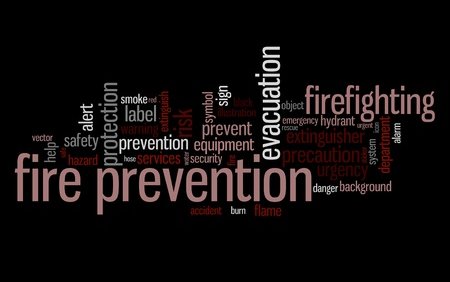What do you want to happen when a customer walks through the door?
Probably straight to your latest promo and then to the till!
Was health & safety at the back of your mind?
The challenge is that as a retailer, health and safety should be at the forefront of your mind. You must make sure that your shop floor is safe for your customers to shop and your employees to work.
Lack of attention to detail or inconsistent checks are just a couple of ways floors become unsafe and lead to injury or illness.
So what are some of the common health and safety hazards on shop floors and what can you do to limit the risk of harm?
Slips, Trips and Falls
Slips, trips and falls are the single biggest cause of retail accidents. However, the risks can generally be controlled by:
- Keeping floors clean, uncluttered and clear
- Keeping aisles, working areas and stairways clear and free of boxes, rubbish or trailing cables
- Keeping floor surfaces dry and debris-free
- Cleaning up spillages and clearing up debris straight away
- Placing warning signs when the floor is slippery
- Keeping flooring in good repair – monitor its physical state (look out for loose tiles or torn vinyl).
Consider using floor mats as a first line of defence. They greatly reduce tracked-in water and dirt. For best results, use mats with non-skid backs that extend at least 10 feet from doors. You can also improve safety by adding caution signs and putting in strips in areas prone to slipperiness. Remember to use slip-resistant floor-care products.
Train staff about what to look for to keep floor surfaces safe – simply getting all employees into the habit of picking up debris such as loose bits of paper can help prevent incidents.
Manual Handling
Shop floor work typically involves repetitive motions – reaching, lifting, long periods of standing. These tasks can result in injury and musculoskeletal disorders.
Factors leading to injury or muscle strain include:
- The load’s weight or shape
- The fitness of the person lifting
- The position the load is lifted to or from
- Whether there is twisting or carrying involved
- Whether proper lifting procedures and assists are in place.

What can you do?
You can remove or reduce the need for manual handling where possible by using hand trucks, trolleys or lifts. To further limit risks:
- Arrange storage areas so that employees do not have to reach or twist when lifting loads
- Avoid storing heavy or awkward items above shoulder height
- Provide safety ladders and steps
- Train staff in proper lifting techniques
- Ensure deliveries are as close as possible to the location where they will be stored or used.
If heavy loads must be manually lifted, ensure they are carried by at least two properly trained people.
When staff are standing for long periods of time, it causes back fatigue and muscle strain. To reduce the chance of injury use:
- Anti-fatigue mats
- Foot rests
- Stools and chairs.
Merchandise
Incorrectly stacked goods may fall injuring people below and overloading shelves/racks may lead to collapse. Make sure shelves are securely fastened to walls and do not overcrowd them with products. Secure displays and stack items with safe shopping in mind.
Overhead signs not fastened to ceiling grids can fall, while those hung with insufficient headroom also pose a safety concern. When lighting displays, take precautions to prevent customers from tripping on cords, getting shocked by faulty wiring or burned by exposed bulbs. Ensure wall-mounted props stay put with nails and screws (not pins).
Hazardous Substances
Some items of stock and chemicals used for cleaning can be harmful. To limit risk:
- Read labels and follows instructions for use
- obtain Material Safety Data Sheets from suppliers
- provide employees with adequate training and protection such as gloves or eye protection (make sure they are used)
- do not mix chlorine bleaches with other cleaning agents
- store all hazardous chemicals in original containers
Air Quality
Retail stores are often located inside other buildings, such as malls, with no windows that open. Without proper ventilation, the air in the shop can begin to collect mould, fungus, bacteria or specific vapours from products used.
To keep your store’s air quality safe, consider installing a mechanical system that cycles in fresh outdoor air and circulates it throughout, both in the main floor area and any back rooms. If a mechanical air system is already in place, check it is working properly.
Fire
Obstructed exit routes, for example by stock and/or accumulated packaging, can prevent escape and provide fuel for fires. Keep all escape routes and fire exits clear, and regularly check them to make sure they stay clear.
Factors such as exposed wire from lighting or computers, improper back room chemical storage or combustible materials left near a heat source are major fire hazards. To limit risks:
- control sources of ignition and keep combustibles to a minimum
- frequently remove rubbish
- keep escape routes clear and emergency exists unlocked (especially at busy periods such as Christmas and Easter)
- provide fire extinguishers and make sure employees are trained how to use them (routinely inspect extinguishers to ensure they work)
- have the electrical system periodically checked by someone competent
Instruct employees on emergency and evacuation procedures and arrange regular practice.
When was your last shop fire risk assessment carried out?
It will need regular review by a Health & Safety consultant. If your shop floor has recently been refitted, then it may impact on your fire safety measures.

General Access/Egress
Glass doors, particularly automatic doors, can trap or injure customers.
Mark or highlight glass door surfaces and post warnings if doors revolve or are automatic. Provide ramps and crossing points where possible.
Crime
Theft of goods or cash places floor staff at risk of violence. To reduce risk:
- consider video surveillance equipment and other security measures
- reduce the amount of available cash by, for example, using time-locked safes (display signs to indicate this)
- identify higher risk times and take extra precautions during them
- Instruct employees in the handling of disputes and security measures
Lone workers are particularly vulnerable and extra measures such as personal panic alarms may be required.
How We Can Help
Are all your health and safety flooring issues covered? Why not let us help?
Ellis Whittam makes simple sense of the law!
Retailers are legally required to get health and safety advice from a ‘Competent Person’. We can expertly provide this health and safety help and we will work closely with you to keep your store safe.
A Health & Safety Consultant with specific retail experience will help to identify the hazards on your shop floor and manage the risks.
We help directors and managers understand and keep on top of their multiple health and safety duties. Contact us to learn about our fixed fee, unlimited support service.





